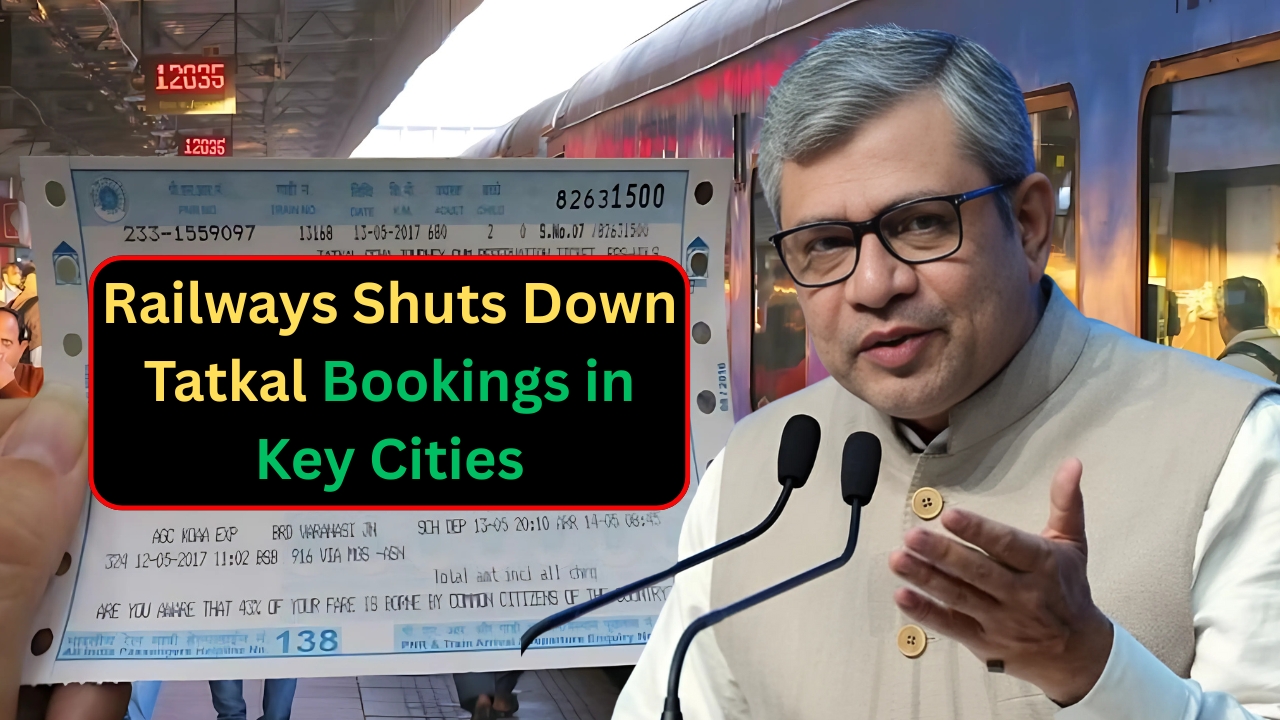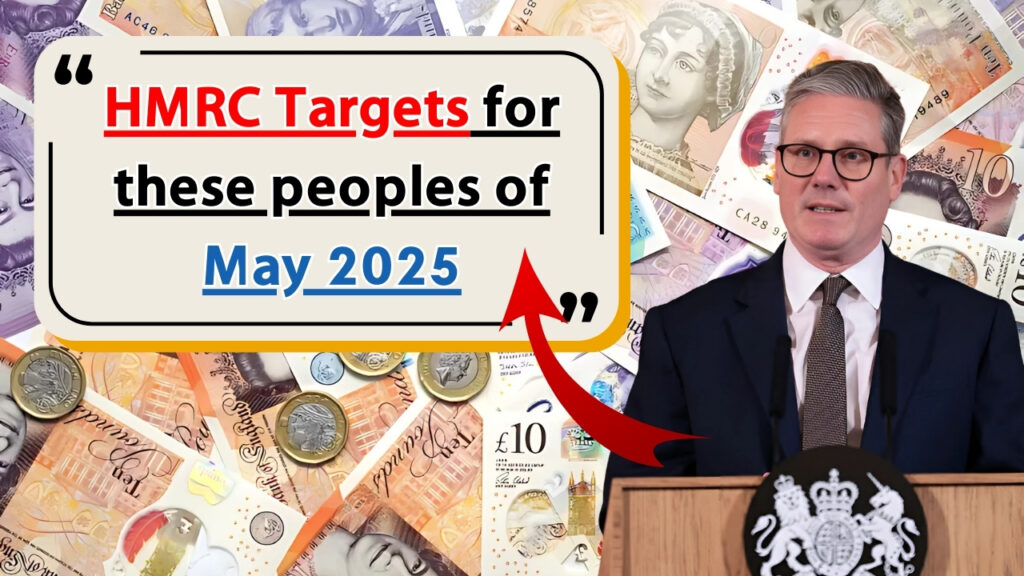A huge action has been taken for millions of passengers, Indian Railways has temporarily stopped Tatkal ticket booking in many big cities.
This is a surprising turn of events given that new rules have been introduced to curb black marketing of tickets and ensure equitable distribution of tickets.
Travelers taking trips from metropolitan cities such as Delhi, Mumbai, Chennai, Kolkata, and Bengaluru will have to make these changes effective immediately.
Why the Abrupt Change?

The Railway Ministry’s decision was not taken in a hurry. Senior officials have been analysing booking trends for the past few months where Tatkal reservations have raised the alarm bells, it said.
Data collected during the past year showed that almost 37% of Tatkal tickets were booked in seconds by unscrupulous agents after the booking window opened, making it difficult to book for genuine passengers.
Railway Minister Ashwini Vaishnaw speaking to reporters yesterday at Rail Bhavan, said, “Our basic work is to allow every Indian citizen to travel equally in our national carrier.
“Suspending these systems for a temporary period is a required process in order to re-build our booking systems with reinforced verification processes.”
The suspension comes at a time when the summer travel season is in full swing, and many families make summer vacation plans months in advance.
The timeline has generated discussions online and passenger groups are saying some better information about rebooking options would’ve been appreciated.
Cities That Are Part of the Suspension
Tatkal booking freeze is applied only on trains that are running from:
Data Cut Off of October 2023.
The Mumbai Metropolitan Region (MMR)
Chennai Metropolitan Area
Kolkata and neighbouring districts
Bengaluru Urban and Rural districts
Hyderabad Greater Municipal Corporation
Ahmedabad city limits
Pune district
Jaipur city
Lucknow urban agglomeration
These cities alone comprise almost 68 per cent of all Tatkal bookings in the country, as per data released by the Centre for Railway Information Systems (CRIS).
But smaller cities and rural stations are unscathed, although officials caution that increased booking pressure at these locations could occasionally cause temporary server problems.
New Regulations Coming into Effect
This suspension will pave way for the implementation of few new rules that will change the way Tatkal bookings are done when the service is resumed. Key changes include:
Biometric Verification Requirement
The biggest change: Passengers will now have to provide Aadhaar-linked biometric authentication for tatkal bookings to validate their identity.
It also aims to combat proxy orders and limit the number of tickets a person can book in a given time frame.
“The biometric system will ensure that the person who is booking the ticket is genuinely travelling,” says Mr. Rajesh Agarwal, a retired railway official and a policy consultant.
Just this alone would eliminate almost 80% of black market activity that is now infecting the system.”
Staggered Booking Windows
Instead of opening all Tatkal bookings at 10:00 AM for AC classes & 11:00 AM for non-AC classes, the new system will introduce staggered window based on the distance of the travel:
Short distance (up to 500 km): 10:00 AM to 11:00 AM
Medium distance (501 to 1000 km): 11:30 AM – 12:30 PM
Long range (over 1000km): 13:00-14:00
This is to lower the server load and ensure more equitable access among different passenger segments.
Dynamic Quota Allocation
Railways will also dynamically revise Tatkal quotas based on demand for particular routes in particular seasons.
On peak travel periods such as summer vacations and major festivals, high-demand routes would be allocated much higher Tatkal quota, sometimes in the range of 25% of total seats as opposed to normal 10-15% of the total seats.
“Dynamic allocation is a huge evolution towards data-driven decision making,” says transportation economist Dr. Kavita Sharma.
“It is aware of the seasonality of travel demand and dynamically allocates its resources accordingly.”
Changes to Premium Tatkal
Significant changes will be made as regards the Premium Tatkal scheme which is currently operated on dynamic pricing that can go up to 2.5 times the base fare.
Under the new framework, the maximum fare will be set at 1.8 times the base ticket price, making travel more affordable for users while still discouraging speculative bookings.
And a part of Premium Tatkal revenue will now be used to fund passenger amenity facilities at stations with high Tatkal bookings — a decision that has been welcomed by consumer advocacy groups that had been demanding greater accountability in the use of revenues.
When Does the Suspension Expire?
Railway officials have been purposely vague about the precise timing, saying simply that the suspension would last “until the technical integration of new systems is complete.” Industry insiders say this could take three weeks to two months.
“The back-end integration is complicated,” a senior IRCTC official told TOI, requesting anonymity.
We’re not just changing the booking rules; we’re building a whole new verification architecture that touches multiple government databases.” Even testing could take weeks.”
Because officials want to have the rollout go smoothly, the phased implementation will likely start in smaller cities first, giving officials time to work out kinks before rolling out changes to high-volume stations in metropolitan areas.
Other Ways to Book for Passengers
With Tatkal now unavailable in major cities, however, passengers’ options for last-minute travel are limited:
Now Booking: Within two hours of train departure, subject to limited seat availability.
IRCTC Tourist Packages: Confirmed berths on select routes and dates as part of a pre-planned journey package.
Wait List Recovery System: Railways has temporarily increased the number of RAC (Reservation Against Cancellation) berths, which means, for those waitlisted tickets, there are more chances to get confirmed tickets.
Vikalp Scheme: Passengers can request for automatic rebooking on alternative trains if their original booking waits listed.
“None of these substitutes … come close to replacing Tatkal’s utility, particularly for emergency travel,” says Sunita Nayar, a passenger rights activist.
The Railways can also look into creating a small emergency quota, which can just be accessed via verified channels, for now.”
Effect on Various Stakeholder Groups
Regular Passengers
Daily commuters and frequent travelers have responded variously. While many exult over the effort to put the brakes on illegal ticket activities, others are fretting over the direct effect on their travel plans.
“Ramesh Gupta, an IT professional, who goes back and forth between Pune and Mumbai every week, shared that, “I get the long-term plan, but as things stand, I have to take a bus that takes double the time and the money.
They should have arranged some alternative for daily commuters.”
Tourism Industry
The tourism sector, still rebounding from pandemic-induced blows, won’t be helped by the uncertainty of whether train tickets will be available.
Tour operators say they have had to restructure packages that were earlier dependent on Tatkal availability for last-minute confirmations.
“We are now getting air tickets booked as backups, which hugely adds on to the package cost,” says Vikas Mehra, secretary of the Association of Tourism Operators of India.
“We have sought special treatment for group bookings at this time while there are changes being made.”
Rural Travelers
Unsurprisingly, rural users could temporarily gain from the modifications. Availability of tickets at smaller-town stations has seen an upsurge as the Tatkal bookings period is not there for major cities.
“From smaller stations, successful Tatkal bookings have gone up 23%,” says railway analyst Priti Sharma.
“This unintended consequence could finally give rural passengers equitable access to a system that has always benefitted urban hubs with better internet access.”
The New System and the Technology Behind It
The new-age Tatkal platform leverages technologies such as:
Immortal booking records using blockchain-based verification
AI algorithm to identify unusual booking patterns that may indicate scalping activity
Cloud-based load balancer to manage booking spikes without server crashes
Authentication 2FA tied to registers mobile numbers
According to railway budget documents released earlier this year, these upgrades were made at an investment of over ₹340 crores.
Reaction and official response
Widespread criticism has, of course, surfaced on social media sites and more traditional venues. The hashtag #TatkalSuspension trended across the nation within hours of the announcement, garnering over 87,000 tweets on the first day itself.
In a bid help travelers, the office of the Railway Minister has created a separate grievance portal for people due to face hardship due to suspension of Tatkal scheme.
Case bookings in medical emergencies, or funerals, etc. will be given priority for such special bookings as claim officials.
Implications for the Future of Railway Bookings
Transportation experts consider these changes as part of Indian Railways’ larger modernization drive.
It was overdue for high-tech and procedural overhaul: First introduced in 1997 and most recently overhauled in 2015, the Tatkal system was the financial equivalent of a very, very old laptop.
“This is the most extensive transformation of urgent ticketing systems in Indian railway history,” says Dr. Ramesh Patel, director of National Transportation Studies Institute.
“The short-term pain should be balanced against the long-term gain of a more transparent, public-facing system.”
A few analysts think these adjustments could one day result in entirely new forms of emergency ticketing options, possibly including:
Medical emergencies proof via hospital or official documentation
Corporate quotas that are priced higher but guarantee availability to business travelers
Seasonal flex-quotas during the peak travel months like Diwali and summer vacations
Looking Forward: What Passengers Should Do Now
For travelers affected by these changes, railway officials suggest:
Booking travel further in advance when you can
How to avail yourself of the IRCTC cancellation advantage via SMS on the waitlist
Consider other transport options for truly urgent travel needs
Foremost, they need to update their personal details in IRCTC profiles so that they are ready for biometric verification when the system is back in action.
Refuse to believe speculation based on forwarded chain messages instead rely on official Railway announcements
These temporary inconveniences are part of the process, as Indian Railways evolves and resets to the future; it is already country’s largest and most complex system for 23 million passengers every single day.
Though the short-term effect is visible, the results we are waiting for—an economically fairer and transparent organization—might well validate the inconveniences we face as passengers now.
The Railway Board assured weekly updates on the progress of implementation and launched a dedicated information portal on the official Indian Railways website.
Affected passengers are hopeful for updates on these official channels moving forward to get the most accurate information on when Tatkal services may resume in only affected cities.






